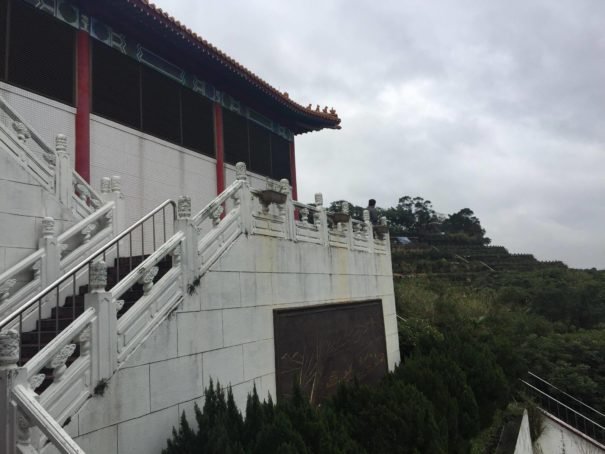
Honor Your Ancestors With Their Favorite Food, Or Whatever’s Easiest to Carry

Honor Your Ancestors With Their Favorite Food, Or Whatever’s Easiest to Carry
Dragonfruit in Taiwan
The heavy cloud of incense overwhelms me. I’m not used to the smell. Thin wafts of smoke draw out memories of household shrines, street-side temples, and our most recent visit about a year ago.
“It is not good for you to breathe in,” my mother tells me, when I ask if she likes the smell. Qingming Festival isn’t officially until next month—April 5th in Taiwan for the day Chiang Kai Shek died and different elsewhere depending on the solar calendar—but some places of remembrance have already opened for Tomb-Sweeping Day.
The temple has prepared vases, plates, and cups for families to use as we remember our ancestors. A colorful dragon stares at me from the bright red plates, just a little damp from people rinsing them after use. We set our white flowers into a vase and lay out our offerings—dragonfruits, apples, cookies, and savory snacks. Having few memories of them, I ask if the crackers and fruits were chosen to suit my grandparent’s taste. My mother explains it is more because they are convenient to carry. Next to us, a family brings out an entire fish and a huge piece of pork belly that the red plate struggles to hold. Another carefully removes the lids off the takeout they brought. The generic packing suggests they are from a local shop.
For any situation, you can find a Chinese food idiom or phrase to match it. Every festival food typically has a story or pun behind it, elevating eating into a cultural activity full of history and mythology. Fish symbolize prosperity, bananas stand for brilliance, and apples mean peace. One verse from an old Song dynasty book comes to mind here: “Firewood, rice, oil, salt, sauce, vinegar and tea are the seven necessities to begin a day.” If we think of the sticks of incense burning unevenly into the white rice as some kind of firewood, we have all the components of an ideal morning. It’s almost like we’re having breakfast with the dead, though we ourselves are not going to be eating until later.
Here, my parents talk about their fathers in the present tense. “Dad must like it a lot here,” says my father. “The view is great, he has a lot of company.” This meal ends when the incense burns out, at which point the ashy rice is thrown out.
The food brought out for tomb-sweeping differs widely by region, with some focusing on dumplings or spring rolls. However, there’s just as much variation within this one temple. The family with the fish packs up and another takes their place, slowly pouring out rice wine into tiny cups. It’s easy to try and paint images of the deceased based on their offerings—this one loved drinking, this one enjoyed meat, this one really liked pea crackers—but I suspect it’s more telling of the families visiting.